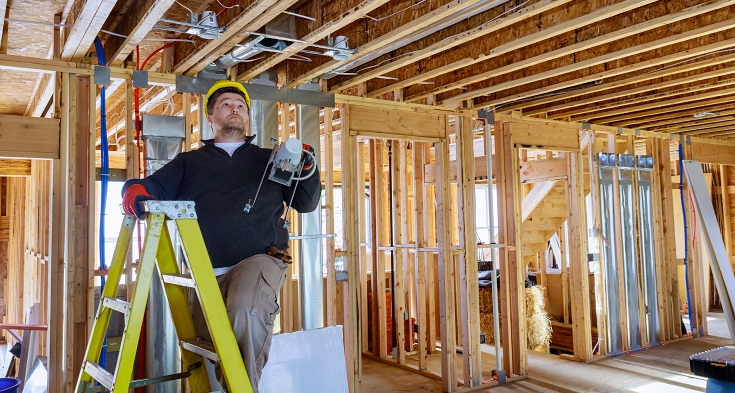
Ensuring compliance with the Agency for Health Care Administration (AHCA) regulations is essential for Florida healthcare facilities. Understanding common violations and how to prevent them not only protects your license but also safeguards patient well-being and the facility’s reputation.
If you face an AHCA violation or an Administrative Complaint—or you want to prevent one—Elevate Legal Services, PLLC is here to help. As a Boca Raton-based firm defending DOH violation Administrative Complaints and administrative law hearings, we guide healthcare providers through every step. Call us at 561‑770‑3335 or email [email protected] to schedule a consultation with our experienced team.
Overview of AHCA and Regulatory Scope
What Is AHCA?
AHCA is the agency tasked with licensing and regulating a wide range of healthcare facilities in Florida. This includes nursing homes, assisted living facilities, hospitals, home health agencies, and more. AHCA’s oversight extends to safety, quality standards, staffing, recordkeeping, and patient care monitoring. Violations can lead to Administrative Complaints filed by the Department of Health (DOH), fines, sanctions, or even license suspension.
How Violations Are Handled
- AHCA inspectors perform regular surveys or respond to complaints.
- Documented deficiencies may result in informal meetings, formal Administrative Complaints, or DOH proceedings.
- Facilities have the right to request an informal review or formal hearing under Chapter 120 of the Florida Administrative Procedure Act.
- Understanding procedure timelines, hearing rights, and possible penalties is vital to mounting an effective response.
Top Common AHCA Violations
Staffing and Supervision Shortages
Many facilities face violations related to insufficient staffing levels or inadequate supervision. Florida law mandates minimum staffing ratios and requires qualified personnel at all times. Violations include:
- Nursing homes fail to meet nurse-to-resident ratios.
- Assisted living facility without on-site staff during facility hours.
- The home health agency lacks a designated nurse supervisor.
Avoidance strategies:
- Maintain documented staffing schedules and backup plans.
- Cross-train employees to address coverage gaps.
- Monitor staffing ratios weekly, especially during high census periods.
Inadequate Resident Care and Safety Practices
Deficiencies in resident care, such as neglect, unmet care plans, or medication errors, frequently result in AHCA violations. Examples include:
- Failure to implement physician care orders.
- Improper medication storage or administration.
- Insufficient supervision leading to preventable falls.
Preventive measures:
- Establish thorough care plans reviewed by clinical staff weekly.
- Use double-check protocols for medications.
- Conduct fall‑risk assessments and implement individualized prevention strategies.
Documentation and Recordkeeping Errors
Accurate records are at the heart of compliance. Frequent issues include:
- Missing or incomplete clinical notes.
- Improper consent forms for procedures.
- Poor documentation of staff training or certifications.
Best practices:
- Standardize charting procedures with templates.
- Audit records periodically for completeness and accuracy.
- Maintain copies of all consent forms and training documentation.
Physical Environment and Infection Control
Health and safety violations remain prevalent. Common issues include:
- Unsanitary conditions in resident rooms or common areas.
- Incorrect waste disposal or sharps management.
- Inadequate infection control training or protocols.
Improvement steps:
- Develop detailed infection control and cleaning schedules.
- Train staff on universal precautions and disposal standards.
- Conduct regular environment inspections and document corrective action.
Resident Rights Violations
Florida law protects resident rights in nursing homes and assisted living facilities. Violations include:
- Unauthorized use of restraints.
- Denial of visitation or restricted communications.
- Inadequate handling of grievances or complaints.
Avoidance tactics:
- Train staff on resident rights and grievance procedures.
- Use restraints only as medically necessary under physician orders.
- Maintain transparent, documented handling of complaints.
Medication Management Violations
Medication-related deficiencies are a major source of AHCA actions. Issues include:
- Expired or improperly stored medications.
- Lack of medication reconciliation after hospital admissions.
- Failure to document PRN medication administration.
Safeguards:
- Maintain secure, labeled medication storage with regular inventory checks.
- Implement medication reconciliation protocols at admission, transfer, and discharge.
- Require staff to document every administration, including PRN use and response.
Florida Statutes Governing Facility Compliance
Nursing Homes and Chronic Care Statutes
Florida Statutes, Chapter 400, outlines nursing home obligations. Key provisions include:
- § 400.024: Resident rights, care planning, and discharge notices.
- § 400.141: Sanitary conditions and infection control.
- § 400.171: Staffing standards and oversight.
Cite these when responding to violation findings, and use compliant policy language to structure internal procedures.
Assisted Living Facility Statutes
Chapter 429 covers assisted living facilities, governing:
- Resident admission agreements (§ 429.255).
- Medication administration (§ 429.256).
- Resident care plan development (§ 429.257).
Using this statutory guidance helps shape internal documents and readiness for AHCA audits.
Administrative Procedure Act (Chapter 120) Rights
Florida’s Administrative Procedure Act protects the right to fair administrative hearings. Facilities facing DOH complaints may:
- Request an informal review within statutory timelines.
- Petition for a formal hearing under chapter 120.
- Offer evidence, cross-examine witnesses, and seek legal representation.
Knowing these rights enables strategic planning for responses and hearings.

How to Avoid Violations — Practical Compliance Strategies
Internal Compliance Programs
- Develop a robust compliance manual aligned with Florida statutes and AHCA rules.
- Designate a compliance officer responsible for training, audits, and corrective action tracking.
- Schedule regular in-house mock surveys to test readiness.
Ongoing Staff Training
- Train staff on topics such as medication safety, documentation practices, resident rights, infection control, and emergency response.
- Require certificates and track compliance records.
- Update training after regulatory changes or survey findings.
Quality Assurance Performance Improvement (QAPI)
- Establish QAPI teams to review incidents, complaints, and outcome data.
- Use data to identify risk trends and implement corrective actions.
- Document meetings, analysis, and results to demonstrate proactive oversight.
Electronic Health Records and Technology
- Use EHR systems that support audit trails, alerts for missed documentation, and plan-of-care reminders.
- Leverage software for staffing analytics and inventory expiration tracking.
- Ensure systems comply with HIPAA and nursing licensing requirements.
Engage External Consultants and Legal Advisors
- Use external survey consultants to conduct readiness reviews.
- Secure legal advisors experienced in AHCA and DOH hearings.
- Have representation ready before a complaint escalates to formal proceedings.
What to Do If You Receive an AHCA Violation or DOH Complaint
Immediate Steps After Receiving a Notice
First 24–48 hours steps:
- Carefully review the complaint or deficiency report.
- Notify legal counsel to preserve rights under Chapter 120.
- Prepare any required written responses within the statutory deadline.
Submitting an Informal Response
- Many minor violations can be addressed through timely informal responses.
- Submit corrective plans, updated policies, or documentation showing compliance.
- Meeting with AHCA staff may resolve issues without a formal hearing.
Pursuing a Formal Hearing
- If a DOH Administrative Complaint is issued, facilities may request a formal hearing.
- Elevate Legal Services, PLLC, protects your rights through evidence gathering, witness preparation, and procedural representation.
- We work to negotiate outcomes or dismissals before sanctions are applied.
Post‑Survey Follow‑Up and Monitoring
- Even after resolution, facilities should monitor ongoing compliance.
- Implement recommended improvements from surveys or hearings.
- Schedule follow-up internal audits and track key compliance metrics to prevent recurrence.
Case Examples Illustrating Common Violations
Nursing Home Medication Error Incident
A facility was cited for administering the wrong dosage to multiple residents, along with poor documentation. A corrective plan, including staff retraining, enhanced double-check protocols, and updated medication logs, resolved the issue. No formal hearing was required after successful informal resolution.
Home Health Agency Staffing Deficiency
A home health provider failed to assign a licensed nurse supervisor as required. AHCA issued a deficiency leading to an Administrative Complaint. With counsel, the provider documented staffing changes, backup plans, and updated policies to ensure compliance with relevant staffing statutes. The case was dismissed after a formal hearing request.
Assisted Living Resident Complaint Mishandled
A grievance submitted by a resident was not properly documented or investigated. The facility faced an AHCA review. Implementing a standardized grievance procedure, staff training, and audit logs helped reverse the deficiency in informal reconsideration.
Key Takeaways and Practical Compliance Checklist
Summary of Common Violations
- Staffing shortages or lack of qualified supervision.
- Medication errors, reconciliation failures, and documentation gaps.
- Unsafe environmental conditions or poor infection control.
- Resident rights violations and grievance procedure breakdowns.
- Incomplete clinical records or missing consent forms.
Compliance Checklist
Area | Preventive Action |
Staffing | Maintain staffing plan, backup coverage ready. |
Medication | Use reconciliation tools, audits, and secure storage. |
Documentation | Standard templates, random audits, and training |
Infection Control | Cleaning schedules, staff protocols, and inspections |
Resident Rights | Training, grievance logs, and consent policies |
Staff Training | Regular, documented training on all key topics |
Legal Preparedness | Policies aligned with statutes, mock surveys |

Why Choose Elevate Legal Services, PLLC?
At Elevate Legal Services, PLLC, our legal team has substantial experience representing healthcare professionals and facilities under AHCA scrutiny. We combine deep knowledge of Florida statutes with a practical understanding of AHCA’s processes. We work to resolve Administrative Complaints efficiently and effectively, protecting your professional standing while offering clear, strategic guidance. With our support, you can understand the root causes of violations and implement preventive policies to ensure lasting compliance.
Final Thoughts
Protecting your facility from AHCA violations requires proactive planning, rigorous training, and expert legal support. At Elevate Legal Services, PLLC, we help you build strong compliance programs and respond effectively to DOH complaints or deficiency citations. Our approach centers on protecting your license and standing while developing systems that prevent future violations.
If your facility has received a notice or you want to strengthen compliance today, call us at 561‑770‑3335 or email [email protected]. Elevate Legal Services, PLLC, stands ready to help you navigate AHCA rules with confidence and precision.





